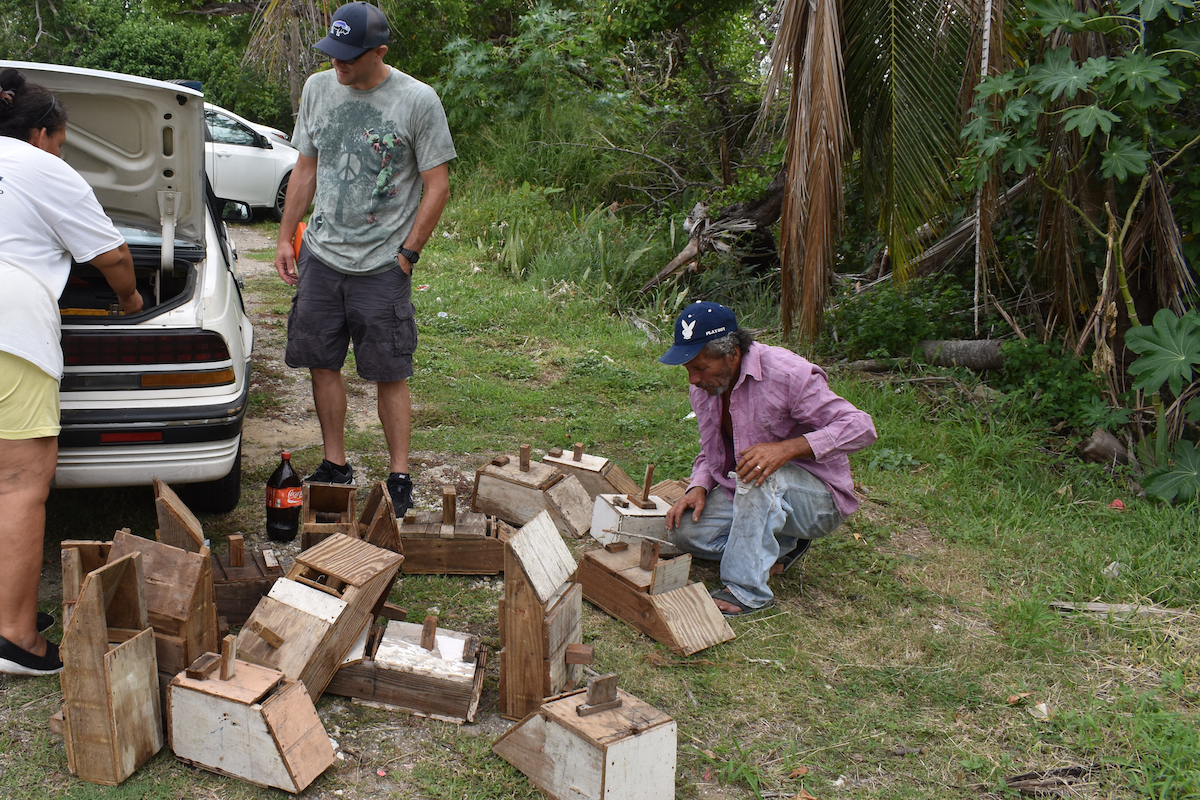KINGSTON, R.I. — July 20, 2023 — A University of Rhode Island faculty member is part of a committee that will help the National Science Foundation shape its research agenda for the next decade.
Carlos Garcia-Quijano, a professor of anthropology who studies the interactions between people in coastal communities and the natural environment, has been named to the committee for the Decadal Survey of Ocean Sciences. The committee, assembled by the National Academy of Sciences, is charged with developing “a compelling research and infrastructure strategy to advance understanding of the ocean’s role in the Earth system and the sustainable blue economy.”
“I’m truly humbled to be able to contribute to this,” Garcia-Quijano said. “The most important effects of climate change are related to the ocean in some way. To be able to contribute my perspective as a social scientist at this critical point in time is an honor, and I’m really excited to participate.”
Garcia-Quijano joins a team of 21 prominent scientists and academics on the Decadal Survey committee. The committee is co-lead by Jim Yoder, a professor emeritus of oceanography at URI, as well as James Zachos, a professor at the University of California, Santa Cruz, who earned his Ph.D. at URI.
Over the course of the next year, the committee will scour the scientific literature and engage the wider scientific community to identify critical and emerging research topics and questions. The team will produce a report outlining key research priorities and recommending strategies for addressing them. The report will serve as a guide for National Science Foundation’s Division of Ocean Sciences as it plans its investments in research, infrastructure, and workforce development from 2025 to 2035.
As an anthropologist, Garcia-Quijano studies the ways in which coastal communities come to understand and interact with the natural environments they inhabit. One of his research projects, a collaboration with fellow URI anthropologist Hilda Lloréns, David Griffith of Eastern Carolina University, and Miguel Del Pozo of the University of Puerto Rico, looks at how communities in Puerto Rico interact with coastal mangrove forests. He’s shown that the fish, land crabs, coconuts harvested from these forests help to provide people with economic resilience as well as a supplemental food source—particularly after hurricanes Maria and Irma devastated the island. That stability is threatened, however, as forests are cut down for hotels and other development.
In his role on the Decadal Survey committee, Garcia-Quijano says he hopes to contribute a perspective that includes the people who depend on the ocean for food, livelihood, and cultural heritage.
“I’m glad that the National Academy was thinking outside of the box in terms of bringing different perspectives to the committee,” he said. “I think it’s important that we’re able to take what scientists are learning about things like climate change and link them to potential effects on people, particularly those in coastal communities.”
For example, a warming climate is expected to affect patterns of ocean upwelling—the rise of nutrient-rich water from the deep ocean to the surface. As upwelling patterns change along with the climate, it could have a profound effect on fisheries around the world.
“What happens if you have a community that depends on a fishery, but now those fish are a thousand miles away?” Garcia-Quijano said. “Those are the kinds of things we’re going to need to think about.”
It’s also important, Garcia-Quijano says, to leverage the vast ecological knowledge of coastal communities around the world.
“One of the big problems with observational science and environmental monitoring is that our baseline is when we started to collect good quality data as scientists,” he said. “But there’s folk knowledge that goes back much further than that. You have things like folk stories that people tell about the way the environment used to be, or log books from fishing fleets that go back centuries. These things can be important sources of baseline data.”
The committee held its first meeting earlier this month and will meet regularly over the next two years. They plan to complete their report next year.

